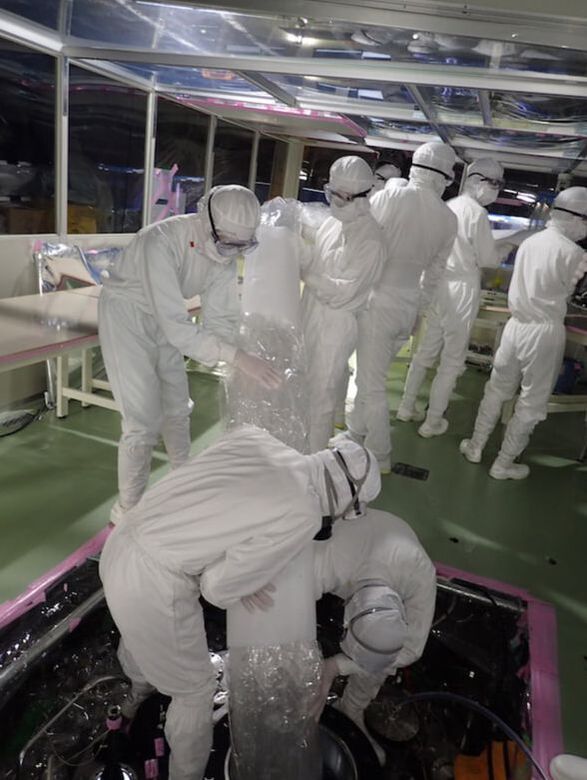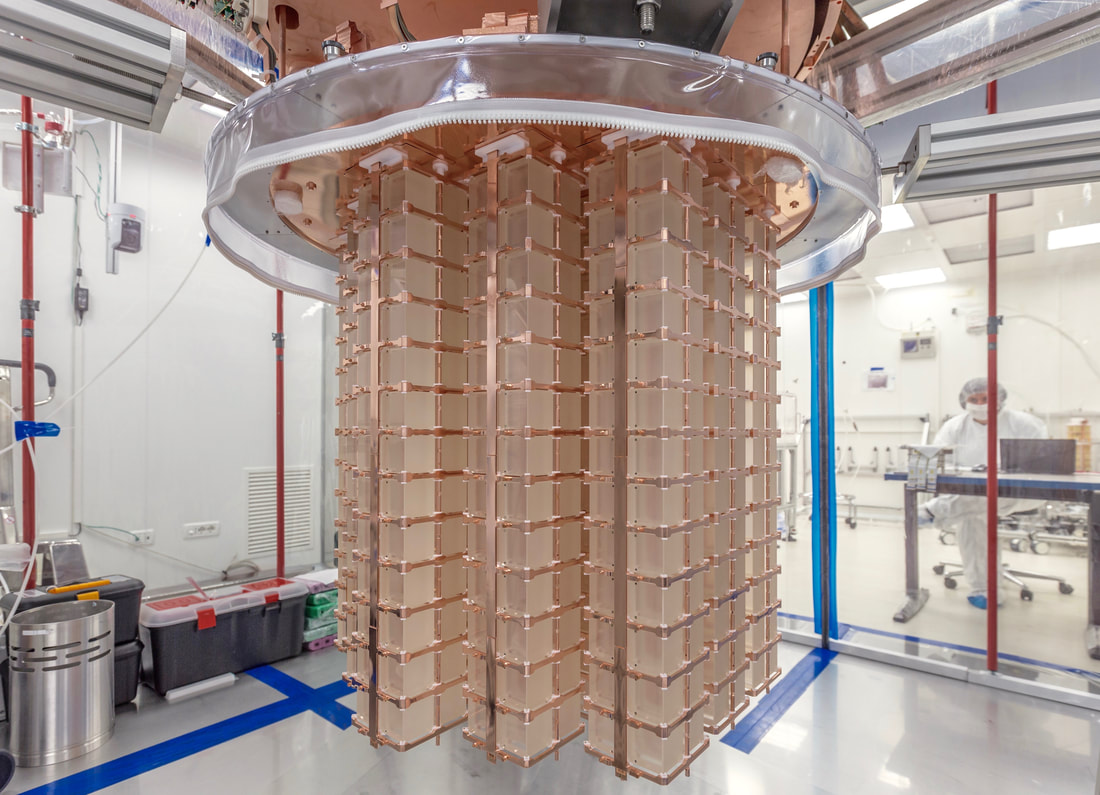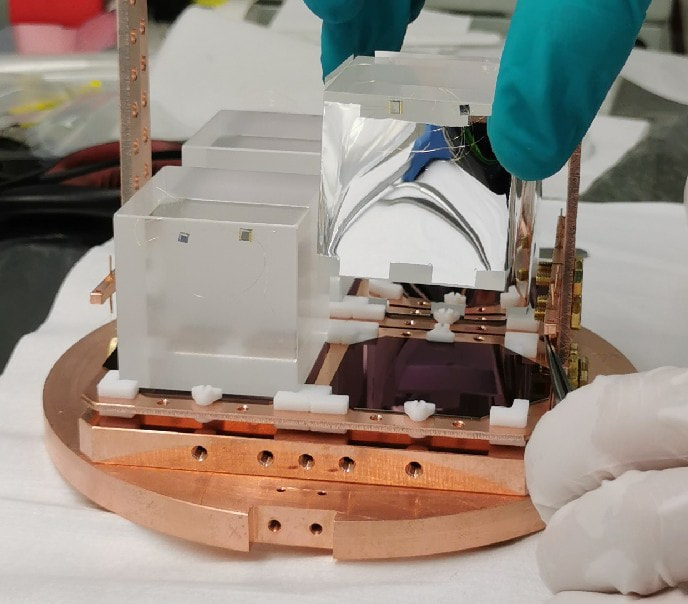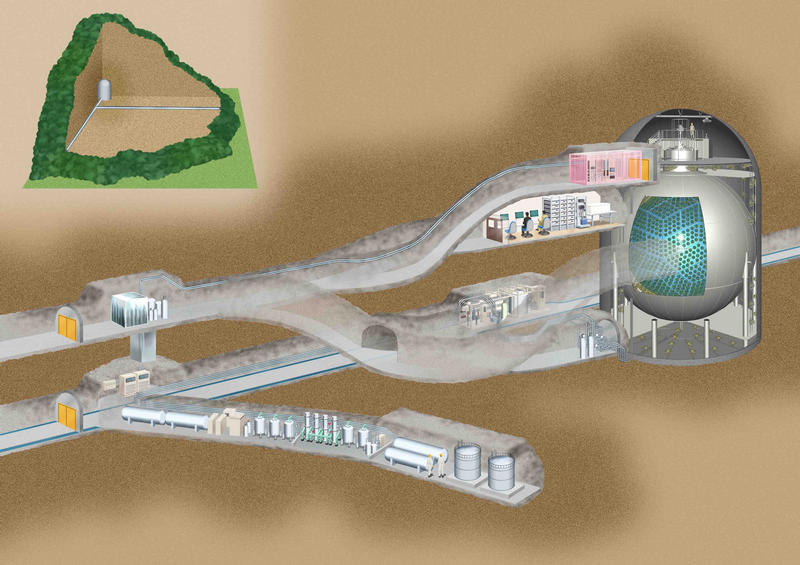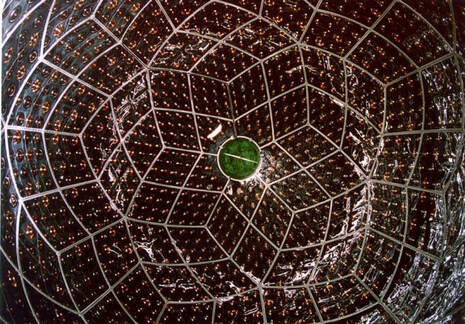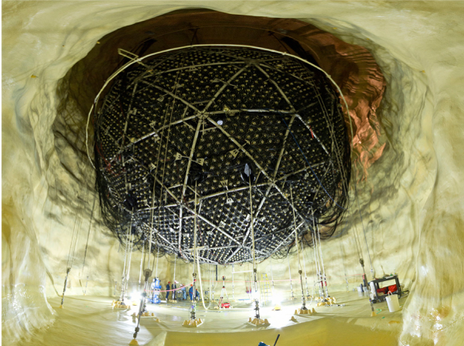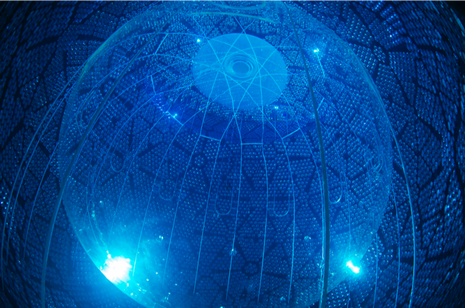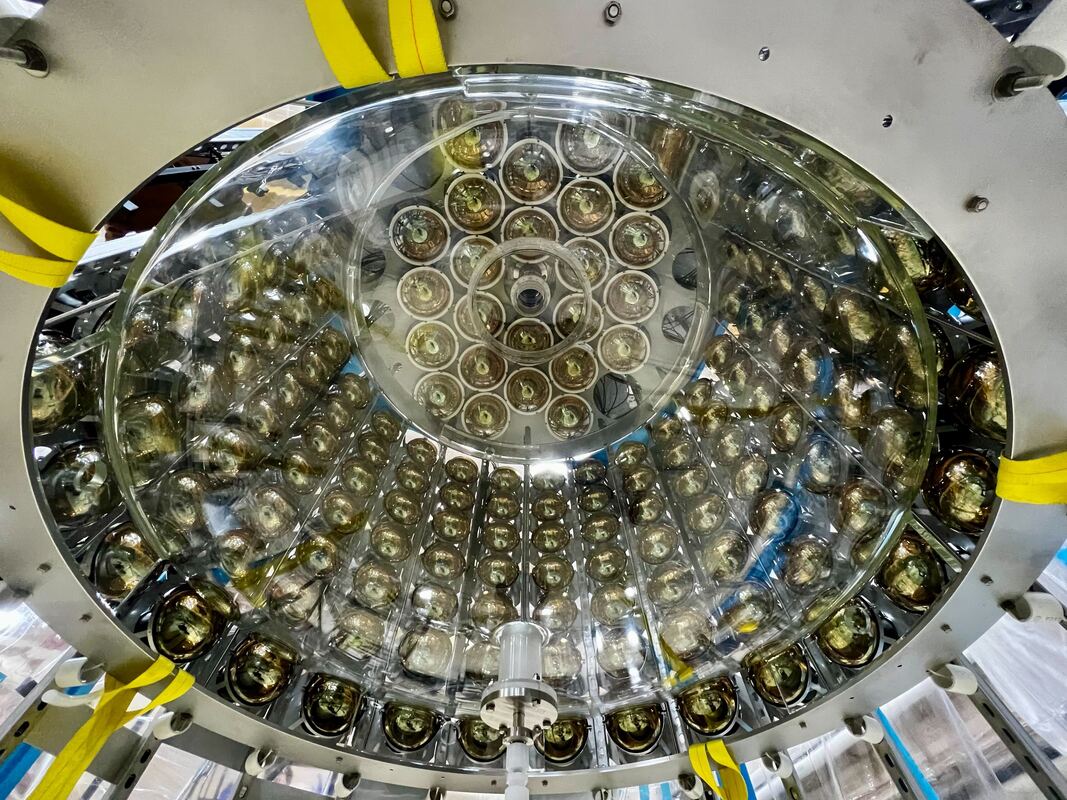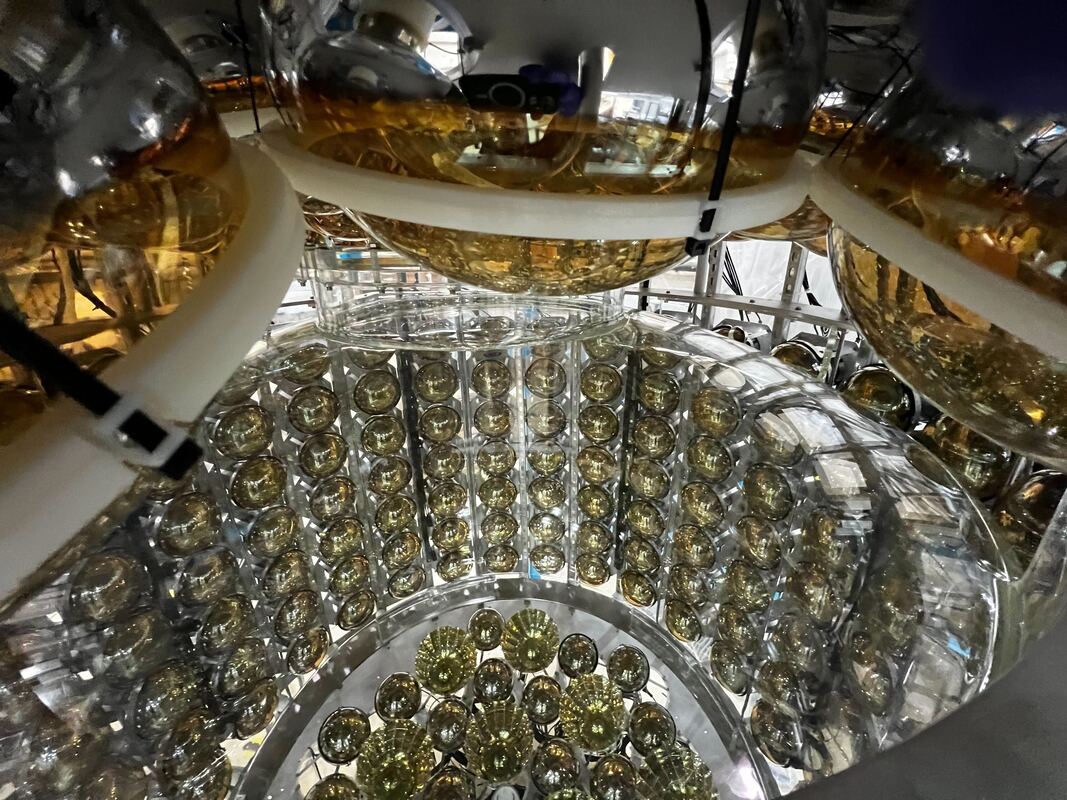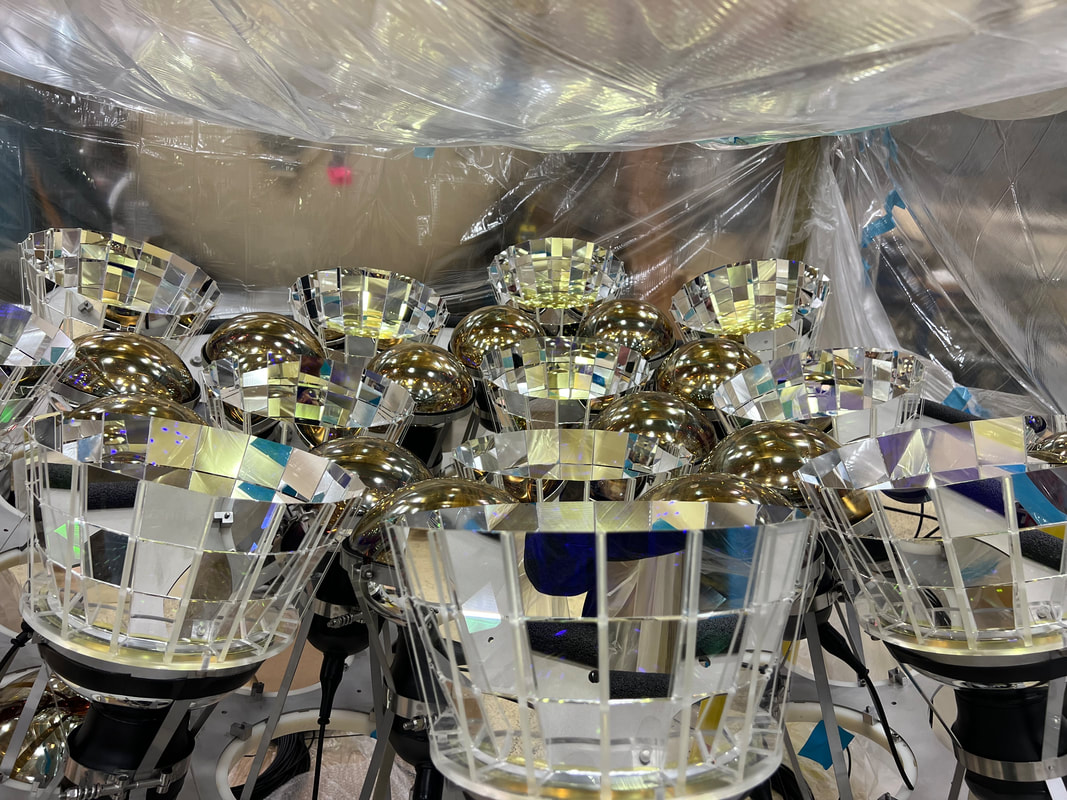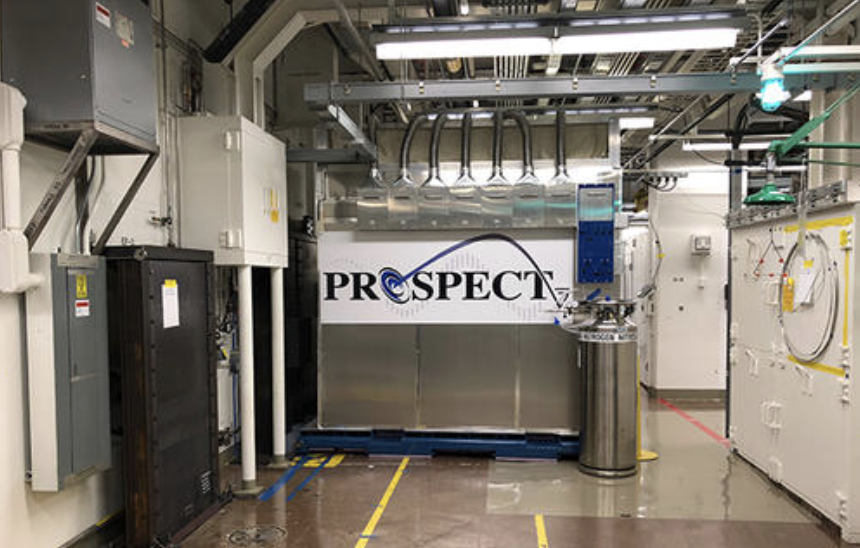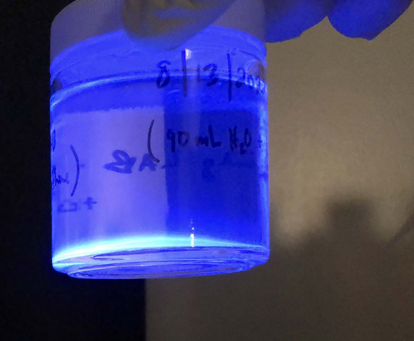Welcome!
My research involves the fundamental building blocks of matter, called elementary particles. I'm particularly interested in a particle called the "neutrino". Neutrinos have no electric charge and a mass at least a million times smaller than an electron. Neutrinos almost never interact with other matter particles - when they do, we say they interact "weakly". Monolithic, state-of-the-art, particle detectors are often used to identify and study these elusive particles.
Why are neutrinos so fascinating?!
Why are neutrinos so fascinating?!
- They come in three known "flavors" and they spontaneously change from one flavor into another.
- They're one of the most abundant particles in the Universe! Neutrinos are produced by nuclear reactors, radioactivity inside the Earth, particle accelerators, cosmic rays from outer space, and fusion reactions in stars like our Sun.
- Neutrinos are valuable messengers that carry information about their origin. They are believed to contain the secrets behind the existence of matter in the early Universe.
Neutrino Alumni
|
Katarzyna Frankiewicz, Postdoc 2019-2022
Kasia worked on vertex reconstruction studies for the conceptual design of large water Cherenkov detector called WATCHMAN, which was aimed at far field monitoring of reactor antineutrinos. Kasia also designed a light yield monitor for a 100-liter test tank filled with Tellurium loaded liquid scintillator, developed for the SNO+ experiment. |
|
Aobo Li, Ph.D. September 2020
Dissertation: "The Tao and Zen of Neutrinos: Neutrinoless Double Beta Decay in KamLAND-Zen 800" Aobo developed a novel machine learning algorithm for KamLAND-Zen, called KamNet, and developed the first Bayesian analysis framework for the experiment for which he received the 2023 APS Dissertation Award in Nuclear Physics. Aobo is now an Assistant Professor with the departments of Halicioğlu Data Science Institute and Physics at UC San Diego. See: https://aobol.github.io/AoboLi/. |












